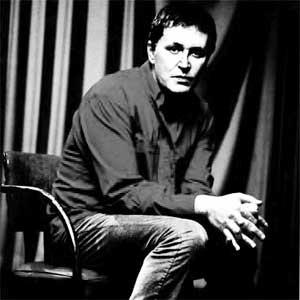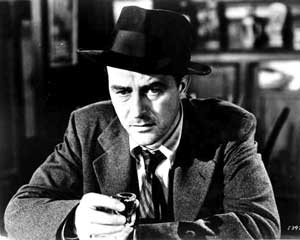Compare & Contrast: July, 2004
By wavelength ~ Posted Thursday, July 8th 2004Guided by Voices' The Same Place the Fly Got Smashed vs. Your Lost Weekend


Apparently the next Guided by Voices album, to be entitled Half Smiles of the Decomposed and released August 24th on Matador, will be their last album. Thus ends a 20-year, 25-plus album career, marked by one period of extreme obscurity, one of some notoriety, and a cult that rivals The Grateful Dead or (more appositely) The Fall.
Guided by Voices' real breakthrough was the 1994 classic Bee Thousand, and their albums since have ever so steadily lessened in quality. Although they have never put out a bad album, the revolving-door band member policy enacted by GbV leader Robert Pollard dulled the vision that made them so special in the first place.
Easily the most overlooked of their early output was 1990's The Same Place the Fly Got Smashed (included only with 1995's Box set). It is an often harrowing "rock opera" of the decline and fall of an alcoholic. Mainly set in the first person, it is an extremely personal statement from a songwriter known for his surreal imagery, clever tunefulness and solid work ethic but not known for being particular personal or revealing. Among Pollard's peers, this was more the province of Sebadoh's Lou Barlow. Pollard's drunken and malicious skewering of Barlow is legendary, and in the context of a record like Smashed, entirely (and equally) understandable and ironic.
Smashed takes its tone from the film The Lost Weekend, the Genesis album The Lamb Lies Down On Broadway, and any drunken yet concise blue-collar bar band giving its all for the 10 people left shooting pool. It starts with an audio clip where a screaming man states, "You brought me down, you ruined me. You and your family." A woman cries, "I did not!" and the man yells, "You most certainly did." From that point on, the record is as unrepentantly negative and murky as a really bad binge, ranging from the dissonantly rendered story of a UFO that turns out to be a cardboard box falling from the skies and onto the main intersection of Dayton, Ohio ("Airshow '88") to tender love songs to the bottle ("Drinker's Peace," "When She Turns 50"), dirges ("Blatant Doom Trip," "Local Mix-Up/"Murder Charge") and the greatest John Lennon homage Pollard ever made ("How Loft I Am?"). The band rocks in a most strangely conventional manner: none of the R.E.M.-isms of their first few records are evident, nor is there the all-consuming brevity and poor recording quality of GbV's classic period ('91-'96).
In the history of the literature on alcoholism, this stands as one of rock music's greatest contributions. It very beautifully and brutally focuses on all parts of the drinking experience: anticipation, relief, drunkenness, blackouts, hangovers, despair and the strange peace that sometimes dawns on the truly self-destructive. It is unflinching in its portrayal of "doing everything the hard way" --- the surge of confidence that comes "when the vodka kicks in" and the subsequent problems that arise from problem drinking. The protagonist of Smashed (modelled after Rael in The Lamb Lies Broadway and The Lost Weekend's Don Birnam, in that he is presented as a passive victim of circumstance) is brought up on murder charges and executed, but from the sounds of it he can't remember whether he did it or not. As Pollard croons on "Starboy," "it's so easy to fall apart."
Smokey Highly Recommends: The Lost Weekend (1945). Directed by Billy Wilder, this incredible film follows an unsuccessful writer on a four-day bender, where his constant drinking destroys him at every step. The scenes of him trying to sell his typewriter for more liquor are particularly heart-breaking.
